
The fourth volume in the NoBusiness Records Sam Rivers Archive series is this live recording from Hamburg, Germany during River's 1979 tour of Europe, with the multi-instrumentalist performing on tenor & soprano saxophones, flute & piano in a quartet with Joe Daley on tuba, euphonium, Dave Holland on bass, cello, and Thurman Barker on drums.
In Stock
Quantity in Basket: None
Log In to use our Wish List
Shipping Weight: 5.00 units
EU & UK Customers:
Discogs.com can handle your VAT payments
So please order through Discogs
Sample The Album:
Sam Rivers-tenor saxophone, soprano saxophone, flute, piano
Joe Daley-tuba, euphonium
Dave Holland-bass, cello
Thurman Barker-drums
Click an artist name above to see in-stock items for that artist.
UPC: 048289090220
Label: NoBusiness
Catalog ID: NBCD 138
Squidco Product Code: 29854
Format: CD
Condition: New
Released: 2020
Country: Lithuania
Packaging: Jewel Case
Recorded in Hamburg, Germany, on May 15th, 1979.
"NoBusiness Records continues their fine series of releases from the Sam Rivers Archive as this album features the great multi-instrumentalist playing tenor and soprano saxophone, piano and flute in the company of Joe Daley on tuba and euphonium, Dave Holland on bass and Thurman Baker on drums. Recorded in Hamburg, Germany 1979 the music has a very interesting sound with both Daley and Holland creating wonderful low end textures that play with and off of one another alongside the reeds, piano and drums to build unique and compelling conception. "An Evening in Hamburg, Part I" has the group stretching out for eighteen minutes of strong saxophone led improvisation, fast and free, with taut tuba, nimble bass and slashing percussion pushing the music along in a very exciting manner. "An Evening in Hamburg, Part II" is twice as long, beginning with the leader's unaccompanied piano that builds into a trio section with bass and drums that is stellar, capturing and holding one's attention, even more so when the tuba enters. Daley gets a short well played solo section, followed by a bass solo that has a long unaccompanied section with Holland kneading powerfully elastic tones from his instrument. Rivers moves to flute for the final section of the concert, with a wonderful section of flute and bowed bass or cello and low tuba developing a quite beautiful sound, followed by flute and tuba with chimes and little percussion instruments, developing an ever evolving sense of texture and progression. As the end of the performance nears, the pace is increased and there is a full band blowout with flute in the lead, all quite melodic, accessible and captivating. The performance is very strong, and the sound has been remastered well, but still shows its age with tape hiss and a bit of compression. Liner notes are limited to a poem by Fred Moten and a couple of photographs."-Tim Niland, Jazz and Blues Blogspot
Get additional information at Jazz and Blues Blogspot
Artist Biographies
• Show Bio for Sam Rivers "Samuel Carthorne Rivers (September 25, 1923 Ð December 26, 2011) was an American jazz musician and composer. He performed on soprano and tenor saxophones, bass clarinet, flute, harmonica and piano. Active in jazz since the early 1950s, he earned wider attention during the mid-1960s spread of free jazz. With a thorough command of music theory, orchestration and composition, Rivers was an influential and prominent artist in jazz music. Rivers was born in El Reno, Oklahoma. His father was a gospel musician who had sung with the Fisk Jubilee Singers and the Silverstone Quartet, exposing Rivers to music from an early age. His grandfather was Marshall W. Taylor, a religious leader from Kentucky. Rivers was stationed in California in the 1940s during a stint in the Navy. Here he performed semi-regularly with blues singer Jimmy Witherspoon. Rivers moved to Boston, Massachusetts in 1947, where he studied at the Boston Conservatory with Alan Hovhaness. He performed with Quincy Jones, Herb Pomeroy, Tadd Dameron and others. In 1959 Rivers began performing with 13-year-old drummer Tony Williams. Rivers was briefly a member of the Miles Davis Quintet in 1964, partly on Williams's recommendation. This edition of the quintet released a single live album, Miles in Tokyo, from a show recorded on July 14 at Kohseinenkin Hall. Rivers' tenure with the quintet was brief: he had engagements in Boston, and his playing style was too avant-garde for Davis during this period; he was replaced by Wayne Shorter shortly thereafter. Rivers was signed by Blue Note Records, for whom he recorded four albums as leader and made several sideman appearances. Among noted sidemen on his own Blue Note albums were Jaki Byard, who appears on Fuchsia Swing Song, Herbie Hancock and Freddie Hubbard. He appeared on Blue Note recordings by Tony Williams, Andrew Hill and Larry Young. Rivers derived his music from bebop, but he was an adventurous player, adept at free jazz. The first of his Blue Note albums, Fuchsia Swing Song (1964), adopts an approach sometimes called "inside-outside". Here the performer frequently obliterates the explicit harmonic framework ("going outside") but retains a hidden link so as to be able to return to it in a seamless fashion. Rivers brought the conceptual tools of bebop harmony to a new level in this process, united at all times with the ability to "tell a story", which Lester Young had laid down as a benchmark for the jazz improviser. His powers as a composer were also in evidence in this period: the ballad "Beatrice" from Fuchsia Swing Song has become an important standard, particularly for tenor saxophonists. For instance, it is the first cut on Joe Henderson's 1985 The State of the Tenor, Vols. 1 & 2, and Stan Getz recorded it during the 1989 sessions eventually issued as Bossas & Ballads Ð The Lost Sessions. During the 1970s, Rivers and his wife, Bea, ran a jazz loft called "Studio Rivbea" in New York City's NoHo district. It was located on Bond Street in Lower Manhattan and was originally opened as a public performance space as part of the first New York Musicians Festival in 1970. Critic John Litweiler has written that "In New York Loft Jazz meant Free Jazz in the Seventies" and Studio Rivbea was "the most famous of the lofts". The loft was important in the development of jazz because it was an example of artists creating their own performance spaces and taking responsibility for presenting music to the public. This allowed for music to be free of extra-musical concerns that would be present in a nightclub or concert hall situation. A series of recordings made at the loft were issued under the title Wildflowers on the Douglas label. Rivers was also recruited by Clifford Thornton to lead a student world-music/free-jazz ensemble at Wesleyan University in 1971. During this era Rivers continued to record, including several albums for Impulse!: Streams, recorded live at Montreux, Hues (both records contain different trio performances later collated on CD as Trio Live), the quartet album Sizzle and his first big-band disc, Crystals; perhaps his best-known work from this period though is his appearance on Dave Holland's Conference of the Birds, in the company of Anthony Braxton and Barry Altschul. In the early 1990s Sam and wife Beatrice moved to Florida, in part to expand his orchestra compositions with a reading band in Orlando. This band became the longest-running incarnation of the RivBea Orchestra. He performed regularly with his Orchestra and Trio with bassist Doug Mathews and drummer Anthony Cole (later replaced by Rion Smith.) From 1996 to 1998 he toured and recorded three projects for Nato Records in France with pianist Tony Hymas and others. In 1998, with the assistance of Steve Coleman, he recorded two Grammy-nominated big-band albums for RCA Victor with the RivBea All-Star Orchestra, Culmination and Inspiration (the title-track is an elaborate reworking of Dizzy Gillespie's "Tanga": Rivers was in Gillespie's band near the end of the trumpeter's life). Other late albums of note include Portrait, a solo recording for FMP, and Vista, a trio with drummers Adam Rudolph and Harris Eisenstadt for Meta. During the late 1990s he appeared on several albums on Postcards Records. In 2006, he released Aurora, a third CD featuring compositions for his Rivbea Orchestra and the first CD featuring members of his working orchestra in Orlando. Rivers died from pneumonia on December 26, 2011 at the age of 88 in Orlando, Florida. On June 25, 2019, The New York Times Magazine listed Sam Rivers among hundreds of artists whose material was reportedly destroyed in the 2008 Universal fire." ^ Hide Bio for Sam Rivers • Show Bio for Joe Daley "Joe Daley - tuba. After nearly 50 years of recognition as one of the consummate sidemen on the adventurous music scene - with remarkable artists like Sam Rivers, Carla Bley, Gil Evans, Charlie Haden, Muhal Richard Abrams, Taj Mahal and so many more - Joseph Daley has emerged as one of Jazz' and contemporary music's most extraordinary composers and leaders. Stunning musicians and fans alike with his brilliant 2011 CD, The Seven Deadly Sins, featuring his Earth Tones Ensemble (a full Jazz orchestra augmented by six additional low-tone horns, and including a seven-member rhythm section and four special guests), this powerfully innovative music mines the same rich vein of musical expression as that of immortals like Charles Mingus, Duke Ellington and George Russell, receiving rave reviews and making several Best of Year lists. In 2013 he followed up with The Seven Heavenly Virtues, then in 2014 Portraits: Wind, Thunder and Love which includes the five movement suite Wispercussion: Five Portraits of Warren Smith - both featuring string orchestras. Drawing the attention of a number of prominent educators and university programs, since 2018 Joseph has become an in-demand and highly compelling educator, providing activities at various institutions in Pennsylvania, Ohio, New Mexico, Washington, as well as a residency at Dartmouth College resulting in a performance of selections from The Seven Deadly Sins project. Plans for extended residencies are in motion for the future, including a week-long residency that will take place at Seattle Pacific University in January 2020, culminating in a full concert performance of The Seven Deadly Sins. Plans are also in place to repackage both Seven Deadly Sins and Seven Heavenly Virtues into a single CD entitled Sins and Virtues on his Jodamusic label in fall of 2019 In addition to his orchestral endeavors, Joseph is developing a significant reputation as a leader of smaller ensembles. In 2015, The Tuba Trio Chronicles - dedicated to his long time friend and mentor Sam Rivers, in whose Tuba Trio he performed extensively in the U.S. and Europe during the '70s and '80s - was released to high acclaim, and when time allowed three years later the ensemble toured in more than 15 U.S. cities in the spring of 2018. Joseph is also focused upon developing a series of life celebration projects dedicated to his late wife Wanda Daley, in which Joseph will use both his Tuba Trio Rituals Ensemble and Earth Tones Ensemble to realize this musical quest. Joseph is also currently a member of the highly eclectic ensemble Hazmat Modine, under the direction of musician and visual artist Wade Schuman. It was Schuman's paintings that helped inspire the creation of Daley's Seven Deadly Sins project, which was developed at the MacDowell Colony in 2001. Whether performing with his large ensemble; with his evocative Ebony Brass Quintet, his stunning World-music influenced Rituals Ensemble, the Tuba Trio or in sparer solo, or duo contexts; sheer musicality, deeply-hewn emotion and jubilant innovation are always at the core of Joseph's most singular musical expression. Best known for playing the tuba, Joseph also plays euphonium, trombone and piano; but these days his growing reputation as a visionary composer is bringing him worldwide acclaim. Born in New York City's Harlem, Joseph began his musical studies in elementary school and received high honors and recognition throughout his school years (including the renowned High School of Music and Art), and was a member of the most prestigious ensembles in the New York City school system. During his high school years, he began performing on the Latin music scene - well-known as one of the most powerful foundations of higher musical learning - performing alongside such fine musicians as Rene McLean, Monquito Santamaria, Andy Gonzalez, Jerry Gonzalez, Alex Blake and many others. A scholarship to the Manhattan School of Music resulted in his Bachelor's degree in Performance and a Master's degree in Music Education and led to a career as an educator in the New York and New Jersey school systems from 1976 until his retirement in 2005. Heavily dedicated to the education of young people to the highest values in musical understanding and expression, Joseph balanced his extensive educational commitments with recording and performing in the ensembles of some of the most provocative musicians on the contemporary jazz scene. In addition to those mentioned above, Joseph contributed heavily to groups led by other major artists including Muhal Richard Abrams, Makanda Ken McIntyre, Jason Hwang and Dave Douglas, and is an original member of Howard Johnson's groundbreaking tuba ensemble, Gravity. He also produced the latest Gravity CD: Testimony. Joseph has also been a longtime collaborator with the highly respected composer/ethnomusicologist and master of non-Western instruments, Bill Cole - a relationship that is still in bloom." ^ Hide Bio for Joe Daley • Show Bio for Dave Holland "Dave Holland is a bassist, composer, bandleader whose passion for musical expression of all styles, and dedication to creating consistently innovative music ensembles have propelled a professional career of more than 50 years, and earned him top honors in his field including multiple Grammy awards and the title of NEA Jazz Master in 2017. Holland stands as a guiding light on acoustic and electric bass, having grown up in an age when musical genres-jazz, rock, funk, avant-garde, folk, electronic music, and others-blended freely together to create new musical pathways. He was a leading member of a generation that helped usher jazz bass playing from its swing and post-bop legacy to the vibrancy and multidiscipline excitement of the modern era, extending the instrument's melodic, expressive capabilities. Holland's virtuosic technique and rhythmic feel, informed by an open-eared respect of a formidable spread of styles and sounds, is widely revered and remains much in demand. To date, His playing can be heard on hundreds of recordings, with more than thirty as a leader under his own name. Holland first rose to prominence in groundbreaking groups led by such legends as Miles Davis, Stan Getz, Sam Rivers, Betty Carter, and Anthony Braxton-as well as collaborations with the likes of Chick Corea, Gary Burton, Jack DeJohnette, and John McLaughlin. Carrying such an enviable history Holland does with little fanfare and extreme humility; to him what matters most is the immediate musical project at hand. Fittingly, he is today more celebrated for the bands that he continues to assemble, record and perform with-ensembles which range from duos and trios to big bands, and often feature musicians like Steve Coleman, Robin and Kevin Eubanks, Jason Moran, Chris Potter, Eric Harland, among many others who were bound for their own headline-status. The consistent priority connecting all of Holland's projects is an abiding sense of challenge-to himself, his fellow musicians, and his listeners. His comments on this driving force in his career serve as a personal credo: "My take on the relationship with the audience is that you don't want to underestimate their ability to hear the music. You want to be as clear as possible in your musical statement and not be obscure in terms of what it is you're doing. At the same time, you don't want to compromise on your creative ambitions because that's the driving force that's going to develop the music and keep it relevant for me. Outside of the audience, there's the aspect of me needing to be interested in what I'm doing and be stimulated by it in a challenging situation which is going to continue to allow me to grow as a player and composer." Holland was born in Wolverhampton, United Kingdom in 1946, and even before reaching puberty played ukulele and then guitar, having fallen under the spell of skiffle music like most British youth during the 1950s and early '60s. As an adolescent, he switched over to the low end of the string family, an uncle fabricating his first "tea-chest bass" out of the thin wooden crates in which tea was shipped. The bass ultimately proved the instrument that steered him away from a working-class destiny. At the ripe age of 14, he began playing R&B, rock and pop tunes for dances and in clubs with local bands, and visiting U.S. artists like Roy Orbison, Chet Atkins, and Johnnie Ray. By his late teens Holland began exploring an expanding palette of jazz styles and it was clear that music was Holland's calling. The search for more opportunities, experience, and advanced music education led the young bassist to journey from The Midlands to work in London in 1964, where he began to study with James Edward Merrett, the principal bassist with the London Philharmonic. A year later, Merrett recommended him for a scholarship to the Guildhall School of Music and Drama and Holland was on his way. The mid-'60s were an exciting time to be in "Swinging" London: the U.K. was pulling itself free from an extended postwar, economic decline and a whirlwind of fresh, cultural ideas (especially musical) was in the air. Holland was soon exploring more advanced classical and avant-garde music, as well as the work of jazz bass masters from Ray Brown, Leroy Vinegar and Charles Mingus, to Scott LaFaro, Jimmy Garrison, Ron Carter and Gary Peacock. He began to perform regularly with bands fronted by leaders at the cutting edge of the U.K. jazz scene: Tubby Hayes, Ronnie Scott, Chris McGregor, Evan Parker, and John Surman. Holland was a mere 19 years old when he began to appear at Ronnie Scott's jazz club in London's Soho district, supporting touring jazz veterans like Ben Webster, Coleman Hawkins and Joe Henderson. That was the venue in which famed trumpeter Miles Davis-who was about to transition from purely acoustic music to more electric instrumentation in 1968, including rock and funk influences-first heard Holland. Davis asked him to take over the bass chair in his band at a time when generations of musicians and music fans were intensely focused on every step the trumpeter was taking. Joining Davis's groundbreaking, semi-electric band was the catapult that launched Holland's career to the international stage. As the world watched and listened, he contributed to albums that pointed the way to the future-Filles De Kilimanjaro, In A Silent Way, Bitches Brew-and performed in jazz clubs and rock festivals, helping to lay the groundwork for the rise of Fusion jazz, an important member of a brotherhood of innovators adept at older and newer jazz vocabularies. While still with Davis, Holland gigged and recorded with other musicians as well, including the Thad Jones/Mel Lewis Orchestra, Chick Corea, and Joe Henderson. Holland left Davis's employ in 1970 and immediately co-founded Circle-the influential if short-lived free-jazz quartet, with Corea, Anthony Braxton and Barry Altschul. After the breakup of Circle in late '71, Holland found himself working in bands led by the likes of Stan Getz, Thelonious Monk, Braxton, and initiating an enduring relationship with saxophonist/bandleader Sam Rivers. By 1972, Holland relocated to upstate New York, and began recording under his own name, beginning a long-standing association with the Munich-based ECM label. It was during this period of re-establishment that he began participating with vibraphonist Karl Berger's Creative Music Studio, and co-founded the Gateway Trio with John Abercrombie and Jack DeJohnette. Holland later joined Betty Carter's group for a year, and served as a sideman on a wide range of recording projects that featured blues singer/guitarist Bonnie Raitt, vocalist Maria Muldaur, and bluegrass heavyweights John Hartford, Norman Blake, and Vassar Clements. In '77, Holland began performing solo bass concerts, which led to the studio album Emerald Tears, which he later followed with the solo cello recording Life Cycle in '83. As the '80s began, Holland stepped forward with a working band of his own for the first time. The Dave Holland Quintet was comprised of alto saxophonist Steve Coleman, trumpeter Kenny Wheeler, trombonist Julian Priester, and drummer Steve Ellington. Their 1984 debut was well-received critically, and initiated a long run of groups that varied in musical approach-smaller lineups focusing on lengthy improvisations, larger ensembles dealing with intricate arrangements- and evolved as new arrivals, like drummer Marvin "Smitty" Smith and guitarist Kevin Eubanks, who all became part of Holland's creative circle. In 1990, Holland debuted Extensions-a quartet album featuring Kevin Eubanks, Coleman and Smith-that was voted Album of the Year by Downbeat magazine. A year later, on the same week, he recorded World Trio, featuring Eubanks on acoustic guitar and percussionist Mino Cinelu, and Phase Space, a duo album with Steve Coleman. These were followed in '93 by Holland's third solo effort, Ones All (both World Trio and Ones All were originally released on the Intuition label.) By '97, the Dave Holland Quintet included a mix of younger and veteran players, with vibraphonist Steve Nelson and trombonist Robin Eubanks (Kevin's brother) alongside saxophonist Chris Potter and drummer Billy Kilson (and later Nate Smith.) While most of his creative choices as a bandleader are the result of feel and intuition, Holland admits a conscious decision when it comes to combining musicians of varying levels of experience. "I'm an equal opportunity employer. I don't think about anything to do with gender, race or age. I'm looking for the music. I listen to the music with my ears, but at the same time, I am also conscious of the fact that it's very important that there is intergenerational contact in the music. Older players should play with younger players and vice-versa so we have a chance to cross-pollinate our influences and backgrounds. This is how the music grows and expands." In the 1990s, Holland's desire to focus on his compositional and arranging skills led to the formation of the Dave Holland Big Band, a group that that led to his notching two Grammy awards for Best Large Jazz Ensemble. Around the same time, he earned a third for an all-star quintet with old colleagues Burton, Corea, Pat Metheny and Roy Haynes. During the '90s, Holland also revisited a number of historic collaborations-including the Gateway Trio, and working with Herbie Hancock-and in the 2000s, Holland expanded his focus to new collaborations: the comically named "ScoLoHoFo" quartet featuring Joe Lovano, John Scofield, and Al Foster; as well as a duo with Jim Hall. In 2003, Holland departed ECM and formed his own label, Dare2 Records, on which he has issued almost all of his recent recordings. In 2005, Dare2 premiered with Overtime, a big band project including music commissioned by the Monterey Jazz Festival. A year later, Critical Mass featured his Quintet (the first with Nate Smith), and Pass It On in 2008, a sextet performing arrangements in a mini-big band style (with, among others, Robin Eubanks, pianist Mulgrew Miller, drummer Eric Harland.) In 2010, Holland released two recordings: the live octet album Pathways, and Hands, a duet with flamenco guitarist Pepe Habichuela. In 2013, Holland dug deeper into his Fusion roots, unveiling his quartet Prism with Harland, Kevin Eubanks, and keyboardist Craig Taborn; and a year later, Holland teamed up with pianist and longtime friend Kenny Barron to record The Art Of Conversation for the Blue Note label. The remarkable rate at which Holland leads or collaborates his way into fresh and exciting projects proves he has no plans to diminish the range nor frequency of his creative drive. His band lineups reveal that his ear is still to the ground, listening for and recognizing fresh and deserving talent, and that many are the musicians who are happy to perform or record with him. As Holland prepares to celebrate his 70th year, he is currently playing with a new group, the Aziza quartet, co-founded with Harland, saxophonist Chris Potter, and guitarist Lionel Loueke. As a leader and collaborator, Holland continues to tour the world and it comes as no surprise that he has and still serves the music in an educational role, having worked during the 1980s as artistic director of the Banff Centre's jazz summer program (Canada), and as a faculty member for two years at the New England Conservatory of Music in the '90s, where he still serves as an artist in residence (as he does at the Royal Academy of Music.) He has also been elected a Fellow of the Guildhall School-his alma mater-and has received honorary doctorates from Birmingham Conservatoire (UK), Berklee College of Music, and the New England Conservatory. Most recently, Holland was made an Honorary Member of the Royal Academy of Music (UK)-a rare honor as membership is limited to 300 living musicians-and he's been named a 2017 Jazz Master by the National Endowment for the Arts. Over the years and through countless musical experiences, Holland has come to define his purpose as a musician-and he articulates it well: "I'm trying to create music that exists on multiple levels, such as simpler elements along with more complex elements. To me, a lot of great art, whether it's visual, musical or written, has an ability to do those things-to offer some fundamental truths that echo in people, yet at the same time, introduce them to a new way of looking at those fundamentals that gives them a little different perspective..." ^ Hide Bio for Dave Holland • Show Bio for Thurman Barker "Thurman Barker (born January 8, 1948, Chicago, Illinois) is an American jazz drummer. Barker's first professional experience was at age sixteen with Mighty Joe Young. Barker took his bachelor's at Empire State College, then studied at the American Conservatory of Music under Harold Jones and at Roosevelt University under Edward Parimba. He next served as an accompanist for Billy Eckstine, Bette Midler, and Marvin Gaye. He was house percussionist at the Schubert Theater in Chicago in the 1960s. In 1968 he joined Joseph Jarman's first ensemble, and soon after became a member of the AACM in its early days. Aside from Jarman, he played in the late 1960s and 1970s with Muhal Richard Abrams, Pheeroan akLaff, Anthony Braxton, Billy Bang, Henry Threadgill, and Kalaparusha Maurice McIntyre. He recorded and toured again with Braxton in 1978-80 and with Sam Rivers in 1979Ð80. In 1985 he played in a trio with Jarman and Rivers, and in 1987 he played marimba with Cecil Taylor. In the 1990s, Barker concentrated more on composition. His 1994 work Dialogue was premiered at the Merkin Concert Hall in New York City. He composed Expansions (1999) and Time Factor (2000) for the Woodstock Chamber Orchestra. Since 1993 he has been an associate professor at Bard College. In 1999 he was guest professor at the University of St. Petersburg." ^ Hide Bio for Thurman Barker
7/1/2025
Have a better biography or biography source? Please Contact Us so that we can update this biography.
7/1/2025
Have a better biography or biography source? Please Contact Us so that we can update this biography.
7/1/2025
Have a better biography or biography source? Please Contact Us so that we can update this biography.
7/1/2025
Have a better biography or biography source? Please Contact Us so that we can update this biography.
Track Listing:
1. An Evening in Hamburg, Part One 18:44
2. An Evening in Hamburg, Part Two 38:07
Improvised Music
Jazz
Free Improvisation
NY Downtown & Metropolitan Jazz/Improv
Quartet Recordings
Staff Picks & Recommended Items
Top Sellers for 2021 by Customer Sales
Search for other titles on the label:
NoBusiness.


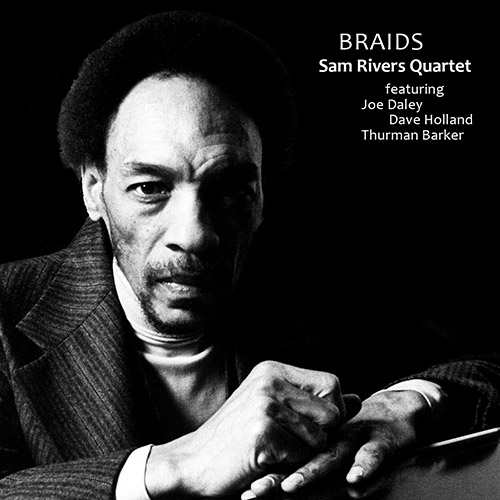
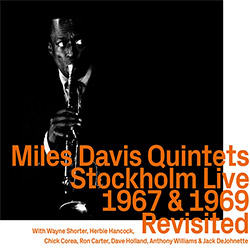

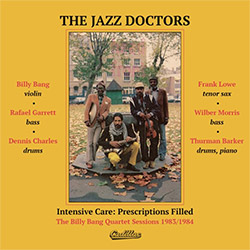
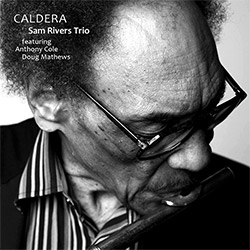

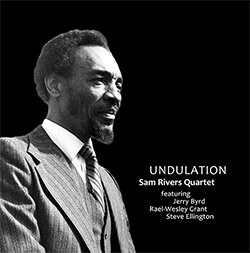


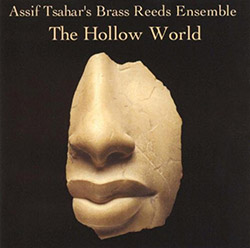

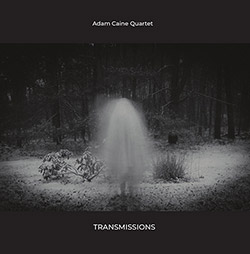



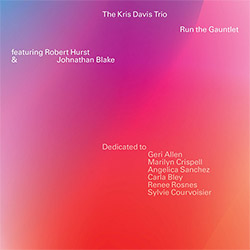

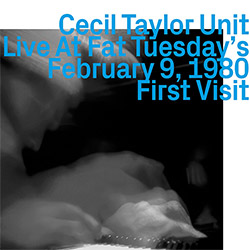



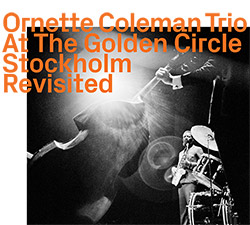















![Deupree, Jerome / Sylvie Courvoisier / Lester St. Louis / Joe Morris: Canyon [2 CDs]](https://www.teuthida.com/productImages/misc4/36404.jpg)


![Eternities: Rides Again [CASSETTE]](https://www.teuthida.com/productImages/misc4/36247.jpg)

![Lopez, Francisco: Untitled (2021-2022) [2 CDs]](https://www.teuthida.com/productImages/misc4/36438.jpg)




![Eventless Plot | Haarvol: The Subliminal Paths [CASSETTE + DOWNLOAD]](https://www.teuthida.com/productImages/misc4/36232.jpg)












![Eventless Plot | Francesco Covarino: Methexis [CASSETTE + DOWNLOAD]](https://www.teuthida.com/productImages/misc4/36231.jpg)



![Das B (Mazen Kerbaj / Mike Majkowski / Magda Mayas / Tony Buck): Love [VINYL]](https://www.teuthida.com/productImages/misc4/36329.jpg)



![Hemphill Stringtet, The: Plays the Music of Julius Hemphill [VINYL]](https://www.teuthida.com/productImages/misc4/36409.jpg)



![Halvorson, Mary Septet: Illusionary Sea [2 LPS]](https://www.teuthida.com/productImages/misc4/17952.jpg)






![Money : Money 2 [2 CDs]](https://www.teuthida.com/productImages/misc4/35894.jpg)




![Klinga, Erik: Elusive Shimmer [VINYL]](https://www.teuthida.com/productImages/misc4/36258.jpg)
![CHANGES TO blind (Phil Zampino): Volume 9 - I Wave on a Fine Vile Mist [CD + DOWNLOAD]](https://www.teuthida.com/productImages/misc4/36061.jpg)

![Wallmart / Rubbish: Asset Protection [split CD]](https://www.teuthida.com/productImages/misc4/35900.jpg)


![+Dog+: The Family Music Book Vol. 5 [2 CDs]](https://www.teuthida.com/productImages/misc4/35897.jpg)
![Kuvveti, Deli : Kuslar Soyledi [CASSETTE w/ DOWNLOAD]](https://www.teuthida.com/productImages/misc4/36107.jpg)

![Nakayama, Tetsuya: Edo Wan [CASSETTE w/ DOWNLOAD]](https://www.teuthida.com/productImages/misc4/36105.jpg)




![Yiyuan, Liang / Li Daiguo: Sonic Talismans [VINYL]](https://www.teuthida.com/productImages/misc4/35957.jpg)
![Brown, Dan / Dan Reynolds: Live At The Grange Hall [unauthorized][CASSETTE]](https://www.teuthida.com/productImages/misc4/36245.jpg)








![Palestine, Charlemagne / Seppe Gebruers: Beyondddddd The Notessssss [VINYL]](https://www.teuthida.com/productImages/misc4/36206.jpg)
![Palestine, Charlemagne / Seppe Gebruers: Beyondddddd The Notessssss [NEON GREEN VINYL]](https://www.teuthida.com/productImages/misc4/36207.jpg)

![Laubrock, Ingrid: Purposing The Air [2 CDs]](https://www.teuthida.com/productImages/misc4/35639.jpg)

![Yoko, Ono / The Great Learning Orchestra: Selected Recordings From Grapefruit [2 CDs]](https://www.teuthida.com/productImages/misc4/35841.jpg)









![Zorn, John / JACK Quartet: The Complete String Quartets [2 CDs]](https://www.teuthida.com/productImages/misc4/35609.jpg)

![Lonsdale, Eden: Dawnings [2 CDs]](https://www.teuthida.com/productImages/misc4/35480.jpg)



![Sorry For Laughing (G. Whitlow / M. Bates / Dave-Id / E. Ka-Spel): Rain Flowers [2 CDS]](https://www.teuthida.com/productImages/misc4/35985.jpg)

![Rolando, Tommaso / Andy Moor : Biscotti [CASSETTE w/ DOWNLOADS]](https://www.teuthida.com/productImages/misc4/36106.jpg)


![Electric Bird Noise / Derek Roddy: 8-10-22 [CD EP]](https://www.teuthida.com/productImages/misc4/35970.jpg)








![Elephant9 : Mythical River [VINYL]](https://www.teuthida.com/productImages/misc4/34624.jpg)



![Elephant9 with Terje Rypdal: Catching Fire [VINYL 2 LPs]](https://www.teuthida.com/productImages/misc4/35355.jpg)
![Deerlady (Obomsawin, Mali / Magdalena Abrego): Greatest Hits [VINYL]](https://www.teuthida.com/productImages/misc4/34876.jpg)







![Surplus 1980: Illusion of Consistency [CD]](https://www.teuthida.com/productImages/misc4/35069.jpg)
![Staiano, Moe: Away Towards the Light [VINYL + DOWNLOAD]](https://www.teuthida.com/productImages/misc4/35037.jpg)
![Coley, Byron: Dating Tips for Touring Bands [VINYL]](https://www.teuthida.com/productImages/misc4/17906.jpg)

![Lost Kisses: My Life is Sad & Funny [DVD]](https://www.teuthida.com/productImages/misc4/lostKissesDVD.jpg)